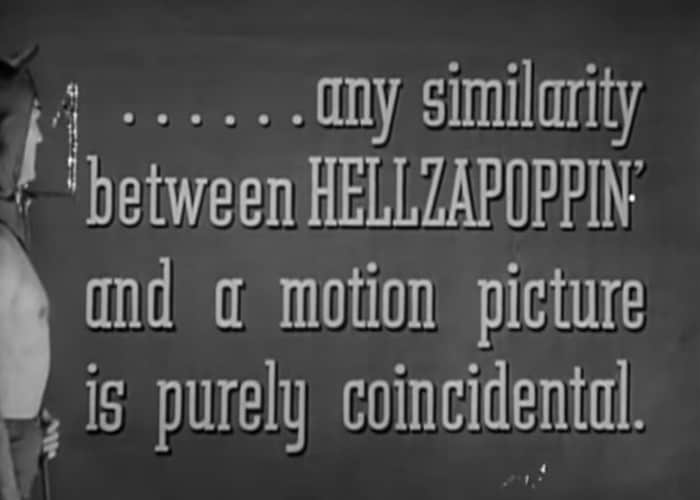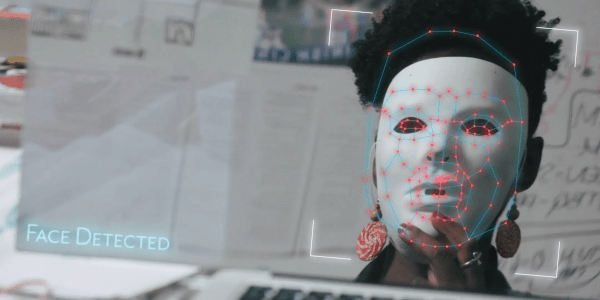Staff Inquiry: Top Tens of 2020
2020 has finally ended and we here at Film Inquiry want to look back at one of the few bright spots it had to offer: the amazing movies. We asked our writers to give their individual top ten films of the year, and since they have varying tastes and are flung across the world, their lists are as varied as they come. You’re guaranteed to find some gems you hadn’t heard about, and that’s really the point of these lists, aren’t they? Ok, they also let us wax poetic about the movies we love, but we hope they help you out, too.
Note: films were eligible if they released in 2020 in the country the writer lives in.
Musanna Ahmed
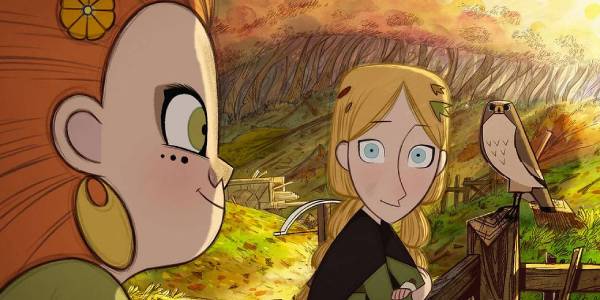
- Wolfwalkers
- Collective
- Rocks
- The Australian Dream
- Mogul Mowgli
- Another Round
- Possessor
- A Thousand Cuts
- The Forty-Year-Old Version
- Thappad/The Invisible Man (tie)
It was a terrible year for most things, including the film industry, but an array of great distributors exploiting VOD models have ensured it was a great year for film. It’s been tough for me to settle on a top ten – if you ask me again next week or even tomorrow, I will probably offer a different list of films. With the exception of one – Wolfwalkers. Cartoon Saloon’s latest masterwork is certainly my favourite film of 2020.
If box office receipts and conjecture based on my own experiences as a participant in online discussions are anything to go by, the Irish animation studio doesn’t get enough love. They’ve made just four films – The Secret of Kells, Song of the Sea, The Breadwinner, and Wolfwalkers – and each one of them is magnificent, containing the best qualities of other beloved studios including Disney, Studio Ghibli, and Laika.
For me, Wolfwalkers is their best effort yet. Through its gorgeous 2D art, the film tells a rich story about a young English huntress and her father who travel to Ireland to hunt the last pack of wolves. Things become complicated when the huntress becomes friends with a mysterious lycanthropic Irish girl – an actual wolfwalker. Is it a poignant tale about parent-child bonds? A stunning allegory for Britain’s ugly history with Ireland? An environmentally conscious message for the world? Wolfwalkers is all of the above and so much more.
Faisal Al-Jadir
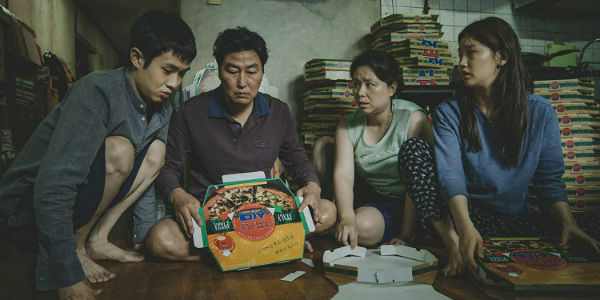
- Parasite
- The Lighthouse
- Saint Maud
- Uncut Gems
- Relic
- Clemency
- Wolfwalkers
- Portrait of a Lady on Fire
- Mogul Mowgli
- Proxima
There’s a scene in Parasite that settles you in with its gleeful optimism and quickly descends into a pit of dread and conflict. That its tonal shifts feel seamless and organic and that its ability to pull the rug from under our feet is a testament to the timeless nature of director Bong Joon-ho’s magnum opus.
Parasite exhibits what the best of cinema can accomplish. It is effortless in its exploration of universal themes and meaty ideas, with a strong emphasis on visual storytelling and adventurous aesthetics.
While it could have remained in the confines of an ordinary drama about class conflict, the movie defies any such limitations and explores the familiar struggles through the chills and thrills of genre cinema. Referencing cinematic treasures like the films of Alfred Hitchcock and Fritz Lang, the film understands excitement and fear, and plays us, the audience, like a fiddle.
It is also deeply empathetic and paints a world that isn’t so much about “heroes” or “villains” but about ordinary people who find themselves in desperate and peculiar circumstances.
Be it an existential crisis, a farcical act, or a vengeful confrontation, the film is given colour and nuance thanks to the superb cast, with a scene-stealing performance from Lee Jeong-eun.
Consistently intriguing, Parasite is a rich experience that will continue to age like a fine wine.
Levi Aluede
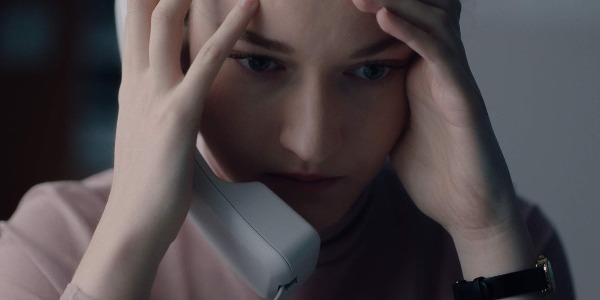
(have NOT seen: Nomadland, Minari)
1) The Assistant
2) First Cow
3) Sound of Metal
4) Da 5 Bloods
5) Mangrove
6) Soul
7) The Invisible Man
8) His House
9) Another Round
10) Time to Hunt
Stephanie Archer
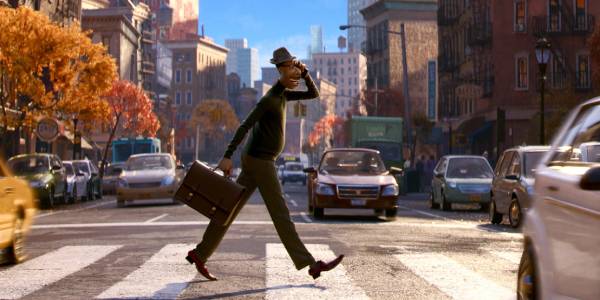
- Soul
- The Devil All the Time
- The Invisible Man
- Da 5 Bloods
- Ma Rainey’s Black Bottom
- Happiest Season
- Hillbilly Elegy
- Mank
- Relic
- Holler
When it comes down to selecting my favorite films of the year, I typically find myself lost within an overwhelming amount to choose from. Festival gems and leading Oscar potentials all become newly minted treasures, ones that have stayed within the recesses of the mind throughout the year. With 2020, the selection was unprecedentedly stunted. With theaters shutting down in March and festivals canceled around the world, the immersion of film became extremely limited. And as studios stumbled in the dark, attempting to adapt to the drastically changing cinematic landscape, the latter half of the year brought exposure to filmmakers that otherwise would have gone unnoticed – and major studios turned to streaming services to reach the masses.
As 2020 comes to an end, I find my list of my favorites easy to culminate, but the coveted number one spot hard to award, with both Mank and Soul vying for the top. Each found deep meaning and connection through their narrative stories, one a love letter to the past and another a return to former glory. And while Mank is a film I can not wait to return to, it’s too much to digest in one viewing,
Soul was the film that has resonated long after its conclusion. There is an endearing quality within Soul that speaks to the deep recesses of the mind and of emotion, coupled with a nostalgic vibe that rustles awake as the film continues on. Soul invites us to follow Joe, music teacher/jazz artist, as his dreams are snatched at the moment of fruition, his fight for life and the chance to live out his dreams propelling not only the story that surrounds him but those whose path he crosses. Soul goes deep in its messaging and imagery, sometimes a bit on the nose, but effective and emotive none the less. Radiating warmth and hope, its success is further inflated by the need many have for this kind of content as we close out 2020. Yet, what pushes it past the rest of the films debuting in 2020 is the universal nature of the film, not only toting its first black lead character in Pixar history but personifying and capturing feelings each person experiences at some point in their life. The need to find your purpose, the unrelenting drive for achievement, and even the lost emotions in a sea of uncertainty and regret. Yet, as much as it speaks to the body, mind, and soul of its viewers, Soul also delivers in comedy, interweaving universal humor within its heavy-handed topics that transcends its presumed intended audience. In essence, it is cinematic perfection. If you haven’t had the time to take in this Pixar gem yet, do. You will not be disappointed.
Dave Fontana
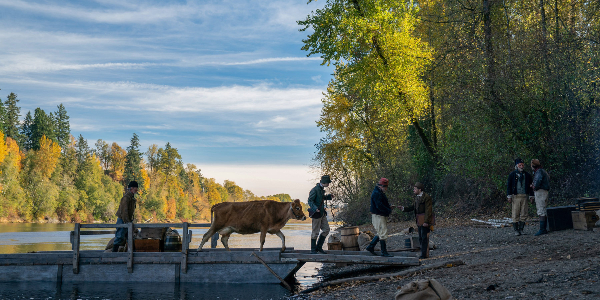
- First Cow
- Wolfwalkers
- She Dies Tomorrow
- Da 5 Bloods
- Mangrove
- Babyteeth
- Dick Johnson is Dead
- Sound of Metal
- Impetigore
- Possessor
2020 was a strange year, to say the least. But even though there weren’t many major releases, that doesn’t mean it was lacking in great movies overall. When thinking back to it, there are many that stand out. But it’s Kelly Reichardt’s First Cow that perhaps had the largest impact on me.
First Cow is light on story: taking place during the 1820s in the Oregon Territory, it primarily focuses on two men. One of them, named Otis “Cookie” Figowitz (wonderfully played by up-and-coming star John Magaro), has a knack for baking. The only issue, though, is the lack of available milk. So his friend and confidante King-Lu (Orion Lee) presents him with an idea: why not steal the milk from a nearby cow, owned by a wealthy neighbor?
The plot may be simple in First Cow, but there’s poetry in that simplicity; whether it’s the warm moments between Cookie and Lu, the tender interactions with the animal itself, or the beauty of the surrounding landscape. Amongst it all, you feel sympathetic towards Cookie and Lu’s plight, realizing that they are just trying to scrape by however they can, when meanwhile some people have so much. Admittedly, I’m not too familiar with Reichardt’s work as a whole, but if they are all as intimately watchable as First Cow, I know I’m immediately on board.
Soham Gadre
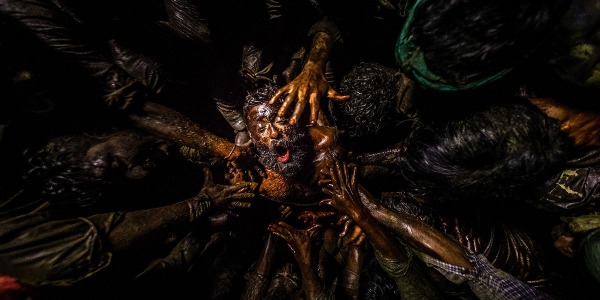
- Jallikattu
- Martin Eden
- The Twentieth Century
- Gamak Ghar
- Pinocchio
- This is Not a Movie
- Bacurau
- Malmkrog
- Nasir
- Ghost Town Anthology
I don’t have much to say about this list other than, wow, what a great year for non-American cinema! In regards to my number one pick, however, Jallikattu, I can only say that this is the first Indian film in a while which completely blew me away and gave me something that I had never seen done before.
Taking place in a Kerala village during a buffalo chase and treating it like it’s a half-western-half-war film was an inspired decision by director Lijo Jose Pellissery, who I can confidently say is the most impressive, visionary working filmmaker in India right now. There is one particular scene in this film where a young boy pushes a tea cart up a hill. Several men hiding with guns carry him away from the cart warning him of the buffalo. In a single tracking shot, the camera swerves around from the side to the back of the cart and follows it as its momentum takes it back downhill. Suddenly the buffalo crashes into the cart and a hundred men jump out from hiding places to try to slay the animal. I described as best I could, but it’s a sequence, like the shootout at the end of The Good, The Bad, and the Ugly that should be talked about and analyzed for decades to come.
Arlin Golden
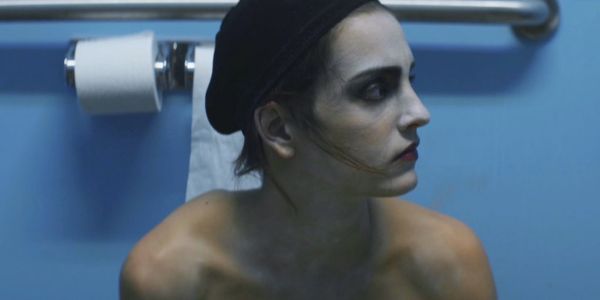
- My First Film Livestream
- Some Kind of Heaven
- The Twentieth Century
- i’m thinking of ending things
- City So Real
- T
- Bloody Nose, Empty Pockets
- Welcome to Chechnya
- All Cats are Grey in the Dark
- Residue
It started by receiving a bunch of silly little videos, which it was then my duty to recirculate among the other audience members, and it ended with my tearing up a piece of paper that bore toxic connotations, and it was my favorite movie of the year.
In the early days of our year inside, when the initial sense that this might only last a month or two imbued our new shared reality with some level of novel excitement, filmmaker Zia Anger began doing flash-live streams of her festival hit My First Film. The constraints of quarantine offered new creative opportunities that turned what was already a stirring performance piece into something that felt even more alive and groundbreaking. In recalling the story of an early foray into feature filmmaking, Anger steered the audience through the grooves of her subjectivity by way of her computer screen, enrapturing us with a display of live-typing that saw a spelling mistake carry more dramatic tension than anything to be found in something like Searching.
As the year ends with an already troubling exhibition model simply adapted and exacerbated for streaming, I find myself wondering about a path that might have been taken if the likes of HBO Max and Disney+ had the sense to take their leads from a storyteller and artist as adept and formally inventive as Anger. An exuberant, symbiotic viewing experience which I lament I may very well never see again, the My First Film livestream gave me a new-cinema high I’m sure I’ll be chasing in vain for years to come.
Mark McPherson
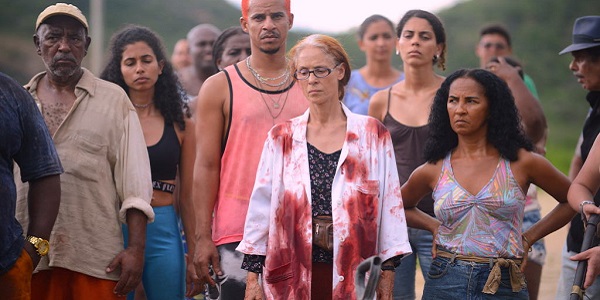
- Bacurau – Rarely do I see a film that strikes me as both weird and unpredictable with wild energy running throughout. Bacurau is that type of unique thrill of a picture that surprises at every turn, featuring a small village trying to defend itself from literally being wiped off the map. Violent, biting, joyful, twisty, and alive.
- American Utopia – It’s not often that I find myself highly engaged with concert films but David Byrne is an overwhelming delight of great insight amid some of the most intoxicating and exhilarating music.
- Wolfwalkers – Cartoon Saloon has made a lot of nifty 2D films I’ve liked but Wolfwalkers is one I adore.
- Possessor – Brandon Cronenberg proves he can surpass his father in crafting a surreal nightmare of a picture.
- Da 5 Bloods – Spike Lee bleeds genres of war epics and treasure hunting to stage one of the strongest ensemble pictures of 2020.
- First Cow – Director Kelly Reichardt once more delivers a deeply contemplative picture that does well never to get lost in the weeds of its period piece.
- Never Rarely Sometimes Always – Few modern films ever feel as though they say so much with so little as Eliza Hittman’s hauntingly quiet picture on a teenager’s mission to attain an abortion. It is so engaging for holding on to her muted face and never letting go.
- i’m thinking of ending things – Director Charlie Kaufman crafts his most ambiguous picture yet by staging a homecoming for a relationship doomed to fail taking a surreal and bizarre twist, never showing its hand to the audience.
- Sound of Metal – Riz Ahmed delivers one of the strongest performances of the year as a drummer who loses his hearing and reluctantly seeks help from the deaf community.
- The Invisible Man – Elisabeth Moss has become a notable name in horror and grips this picture with a fantastically paranoid and vicious performance as she tackles an abusive husband turned literal monster.
Alexander Miller
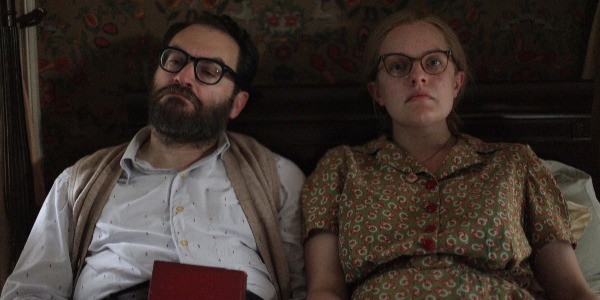
- Shirley – Shirley is a movie that can really work a number on you. Josephine Decker, Elisabeth Moss, and writers Sarah Gubbins and Susan Scarf Merrell seem to know something that most other filmmakers don’t: they know that great artists and the creative mind need to be possessed by something in order to make it truly creative and brilliant. This isn’t the tragic “aw let’s gawk at the tortured artist” film; Shirley is about Shirley Jackson and Shirley Jackson’s writings. This is a film that dissects the haughty pretentious and sexist trappings of academia, but most importantly, Decker’s film is about secrets, whispers, hidden trysts. It’s both earthy and dreamy, gloomily beautiful and little sick in that woozy, sepia wiped atmosphere of southern gothic traditions Shirley Jackson so wonderfully thrived.
- Tommaso/Siberia (tie) – Abel Ferrara keeps chugging along at a herculean rate with three feature films within the year (if I had seen The Projectionist, this would probably be a three-way tie). Tomasso is a moody tale of maturation, sobriety, the dichotomy of gender and age, and a revealing tale of personal catharsis. Siberia, another extension of the perfectly tuned pairing between Willem Dafoe and Ferrera as the director’s acting surrogate. If you try to “get” the film, I think you’re missing the point, at least that’s how I felt.
- To the Ends of the Earth – Kiyoshi Kurosawa turns from his characteristic slow-burning brand of horror and innoculates his atmospheric storytelling with a delicate, persuasive tale of alienation and discovery. Kurosawa’s doing an Antioni thing, and it’s perfect; you want to look at this movie, and you want to feel this movie, it’s beautiful.
- Mank – Mank is a cunningly realized tale about one of cinema’s most celebrated films, the long-debated credits of its authorship, and the various people that (may have?) inspired its indelible characters. There’s a neverending swirl of mythic proportions surrounding the life and career of Orson Welles, thanks largely in part to Orson himself, the countless books, documentaries, interviews, essays, and films that fly around in the Wellesian miasma, Mank adds a layer to that cloud of intrigue, and we’re all the better for it.
- Wasp Network – Like so many of Olivier Assayas’ great films, Wasp Network is one of the misunderstood titles that so many critics and audiences haven’t warmed to, like Boarding Gate, Demonlover, even Personal Shopper was slow to gain momentum. If Assayas keeps following his instinctual prowess, we’ll continue to get stunning and original films that defy conventions and fly in the face of modern expectations, thank goodness.
- Da 5 Bloods – Spike Lee takes the incendiary charge that lies at the heart of his best most recent work and uses it to inject the wartime adventure films in the spirit of Kelly’s Heroes, with a fiery spirit of political and racial insight.
- The Invisible Man – I love that one of this year’s best horror films is also one of the most stirring treatises regarding the enduring trauma and psychological effects of domestic abuse. And it’s not satisfied to touch on the subject or reference it merely, the film is a bold statement, and it’s articulation of fear doesn’t waver or resort to any familiar cop-out. The Invisible Man is the real deal. And maybe someday down the road, abusers will be like the archaic movie monsters in the mold of vampires, werewolves, and mummies, the lore of a different time.
- The True History of the Kelly Gang – The very title evokes and mocks the mythic proportions that define the western. Justin Kurzel plunges into the dirty, grimy, bloody, and sweaty exploits of the Kelly gang and its gorgeously violent in all its homoerotic expressionism. There’s time to dump on British colonialism; this is a revisionist western in the truest sense of the word.
- The El Duce Tapes – Nobody makes movies like Rodney Ascher, not quite a documentary, something like an essay film, and yet The El Duce Tapes plays like a found-footage horror film, not exactly what you’d expect for a look at a shock rock group The Mentors and it’s notorious lead, El Duce. But, if you hear all the horrible blatherings of its subject, you’ll agree, it’s not just scary but a little too close to how little things have changed since the band’s heyday.
- Martin Eden – It’s a simple story that’s anything but simple, one person’s struggle to become a respected writer, an artistic triumph; meanwhile, the film puts us in the middle of classist struggles, social upheaval, proletariat versus bourgeoisie, and the bifurcation of art and politics. The sumptuous 16mm photography is an added bonus.
Jesse Nussman
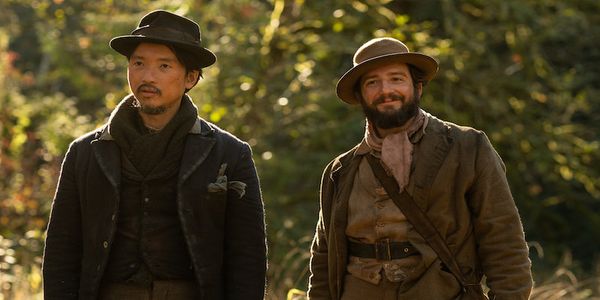
- First Cow
- Lovers Rock
- American Utopia
- i’m thinking of ending things
- Mangrove
- Nomadland
- Da 5 Bloods
- Minari
- Boys State
- Mank
Lists are ultimately just snapshots of a moment but, that being said, I’m taken by how much my own year-end list seems to reflect the reality, conversations, and hardships that dominated the last twelve months. In the midst of an election season that loomed over the year like an ominous spacecraft, a movie like Boys State examined how our political discourse can be corrupted even at an early age while Mank showcased the way those in power use the media of the day to sway minds in their interest. Films like Spike Lee’s Da 5 Bloods and Steve McQueen’s Mangrove lit off like firecrackers as society’s deep racial wounds once again made themselves apparent.
Perhaps more unique were the movies that indirectly felt more powerful through the lens of pandemic life. In a recent episode of The Latest, I mentioned how Nomadland, Minari, and First Cow all felt rooted in a desire for work and pride in working off the land to support oneself; powerful subject matter as millions struggle to find economic footing during COVID-19.
At the same time, i’m thinking of ending things became a unique kind of horror experience, reflecting the sense of static movement, entrapment, and time eroding, often brought upon during quarantine.
Meanwhile, movies like American Utopia and Lovers Rock brought the energy of communal experience to the intimacy of our homes, whether it be the ecstasy of live music or the lure of the dancefloor.
Clement Obropta
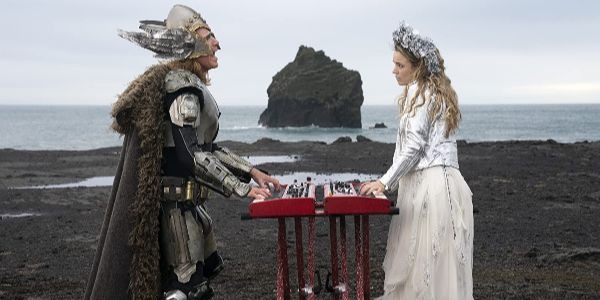
Having not watched many new releases this year, I will instead rank the best cries I had during 2020’s movies, which I think is as good a thing to list as any.
- Eurovision Song Contest: The Story of Fire Saga: I was shocked I cried twice during Eurovision Song Contest. I was sewing face masks, too — I hadn’t even given the film my full attention! But My Marianne, McAdams and Ferrell’s climactic performance of “Husavik (My Hometown)” at the finals completely wrecked me, and I bawled my stupid eyes out watching the pair salvage not only Iceland’s national reputation, but also their relationship.
- Tiger Milk: Nini and Jameelah’s scene at the airport, when BANKS’ “You Should Know Where I’m Coming From” kicks on the soundtrack and the girls grasp at each other through a chain link fence, gasping through tears, was absolutely too much for me.
- Onward: Of course the Pixar movie requires the most tissues. Tears from the final showdown to the end credits from me.
- Hubie Halloween: Adam Sandler and Julie Bowen’s bittersweet meeting on the pier. Sandler’s lovable doofus pariah character is warm and wonderful, and I loved just seeing Bowen beam at him.
- Eurovision Song Contest: The Story of Fire Saga: “I wrote that song for you,” Rachel McAdams says at the “breakup” scene between her and Will Ferrell. She’s the emotional core of the film, and everything — the stark framing, her ragged dress, the hushed soundtrack — capitalizes on the power of her performance in that moment.
- Wonder Woman 1984: After the climax, when Pedro Pascal embraces his son. Not a full cry, but definitely sniffles. Patty Jenkins might not do bombast well, but she really knows how to stage a reunion.
Linsey Satterthwaite
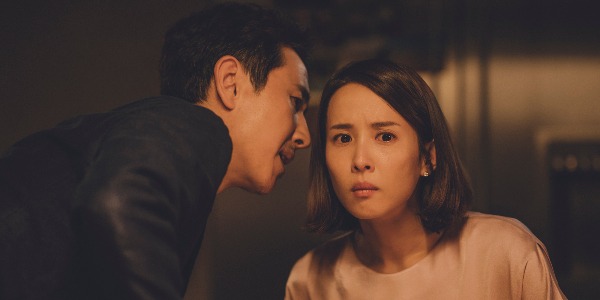
- Parasite
- Saint Maud
- Uncut Gems
- The Lighthouse
- Portrait of a Lady on Fire
- Kajillionaire
- The Assistant
- Saint Frances
- The Personal History of David Copperfield
- The Invisible Man
To quote a dear friend of mine, it is hard to remember when an Oscar Best Picture was this much fun. Parasite is a film of razor-sharp wit, stunning execution, and mounting suspense that director Bong Joon-ho masterfully crafts.
The film seamlessly builds and blends different narrative notes as it weaves through the exploits of the Kim family who infiate the lives of a rich family called the Parks. How Bong Joon-ho manages to spin all these plates of cinematic genres and plot twists is the sign of a maestro working at the height of his powers, his camera utilising every moment and detail of his intricately weaved tale. He is aided by an ensemble of impeccable performances with every player hitting the beats of the script and selling every moment of impoverished desperation and each sign of blatant entitlement. Special mention must also go to the additional cast member of the film – the Park’s family home, which is a stylish, icy, modern construction that comes to be a symbolic representation of the class divide between the two families.
Parasite is a timely film and a film of our times, where the gulf between those with and those without becomes bigger every day and where the contempt for one another is not always hiding under the surface but can be also be seen within plain sight. But Joon-ho does not bludgeon us over the head with a message. Instead, he lets it burrow under and become greedy on the blood of society. And he also does not let it overwhelm the story but instead enhances what is a rip-roaring yarn, a tremendous piece of cinema that has made history and will stand the test as one of the classics of our time. In the context of our barometer of modern praise it is the film equivalent of a mic drop – believe all the hype.
Kristy Strouse

(not ordered)
First Cow
Possessor
Sound of Metal
Black Bear
i’m thinking of ending things
The Assistant
Color Out of Space
Yes, God, Yes
Never Rarely Sometimes Always
Soul
Tenet
When I first tried to gather my top ten films, I found myself on par with the uncertainty that clouded this past year. I felt like I hadn’t seen enough movies, yet when I finally caught up, I couldn’t pinpoint a favorite (let alone only 10). Sounds exhausting right? That’s 2020 for you.
Still, I’m pleased that there were so many stunning films I had seen to consider, despite many potential contenders (Minari, Nomadland, Wolfwalkers to name a few) that I had missed.
I tried to be as eclectic with my choices as possible. Some are bonkers, others poignant. Some with standout performances, other visually and technically wonderful. All hail from different genres, inciting various emotions, that each solidifies my love for movies in all of their unique glory. You’ll find an existential Pixar (Soul), a wonderfully disturbing, Lovecraftian weave, featuring a necessary dose of Nicolas Cage (Color Out of Space). A Charlie Kaufman head spinner, as if there are other kinds, (i‘m thinking of ending things). An interesting powerfully performed look at an artist’s process with stellar leads (Black Bear). As well as a film that takes its time creates beauty in the details, and resonates long after the credits (First Cow). There’s a sci-fi/horror/mystery stunner in Possessor and a drama with some of the best sound editing and performances of the year in Sound of Metal. I was also quite taken with three dramatically different, yet female-centric, films (starring and directed by). One is a dark comedy, that’s both witty and moving (Yes, God, Yes). With some terrific direction, Never Rarely Sometimes Always is a subtle, but emotional story. The Assistant, and the wonderful lead performance, gives us a look at just one day of workplace harassment, and it’s all you will need. You’ll feel these all in your marrow.
And yes, just like the unruly year we just finished, I decided there’s eleven. Tenet was pretty extraordinary visually, and I found it quite enjoyable to geek out over the subject matter.
Jake Tropila
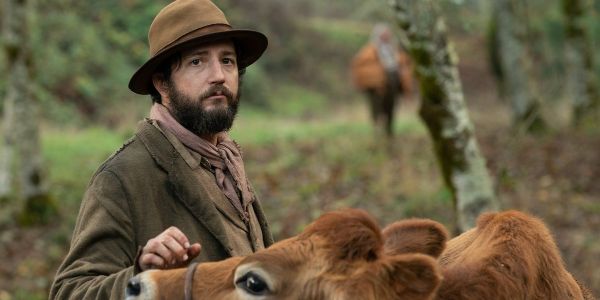
- First Cow
- Fourteen
- Undine
- Bacurau
- Da 5 Bloods
- The Nest
- Tommaso
- Siberia
- Possessor
- Unhinged
Considering the torrential downpour of cinema closures, delayed releases, and perpetual bad news that filled a nightmarish twelve months, 2020 was always going to feel like an undernourished year in film. But out of the bad came the good, and perhaps with most (if not all) blockbusters cast aside, audiences could make room for other films they would not ordinarily consider. After all, this year we received a triumph in genre filmmaking, a worthy successor to David Cronenberg, two first-rate collaborations between Willem Dafoe and Abel Ferrara, the horror of marriage, straight fire from Spike Lee, a blast of South American catharsis, a fantastical tale of romance, and the staggering cost of a lifelong friendship.
But it was First Cow, Kelly Reichardt’s seventh film and complete masterwork, that has stayed with me long after I first saw, back in the halcyon, theater-going days of March. Beautiful in its simplicity (and simple in its beauty), First Cow is a tender tale of the unlikely business venture between two loners and their very helpful bovine in 19th century Oregon. Shot in Reichardt’s assured, 4:3 Academy ratio and teeming with all sorts of nature and life, First Cow is an incredible achievement, worthy enough to take the top spot of any year, not just 2020.
Emily Wheeler
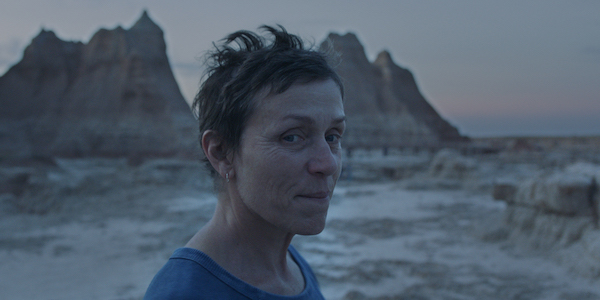
- Nomadland
- Never Rarely Sometimes Always
- The Nest
- Crip Camp: A Disability Revolution
- The Half of It
- The Old Guard
- First Cow
- Kajillionaire
- Beanpole
- One Night in Miami
2020 will inevitably be studied for the way it influences our future, but as I sit on the precipice of whatever that future might be, I can’t help but see the long roads that led to this bizarre year. That’s true for the year’s best movies as well, which are populated by filmmakers stepping into their full power and looks back at pivotal moments in history. This is, of course, how time works. People build on past successes and (hopefully) learn from their mistakes, but unlike most years the up-and-comers and those usually pushed to the background didn’t have to jockey with industry stalwarts, who mostly sat out the year waiting for greener pastures.
What that left us with are pastures that are always green, if we care to look at them. Women, particularly women of color, planted flags in areas where they were previously denied and people dredged up tales from our past that resonated with astounding clarity. Mostly, though, 2020 allowed filmmakers who are attune to both our frailty and our resiliency to shine, and my modest hope for the future is that we allow them to stay at the fore.
Tynan Yanaga
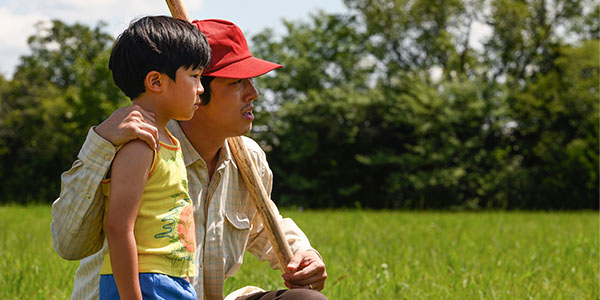
- Minari
- Nomadland
- Wolfwakers
- Sound of Metal
- Mangrove
- Lovers Rock
- The Assistant
- Driveways
- Beanpole
- One Night in Miami
Minari plays as another perspective on the American Dream. It’s an immigrant story insulated by the family unit. You have a melding of cultures born across a smattering of languages and cultural references from Mountain Dew to the resilient minari plant. I can’t think of anything more resolutely American. Any conflict comes from within and there are real decisions to be made, whether it’s in service of a father’s compulsion to provide for his family or a mother’s commitment to stay together at all costs. Steven Yeun and Han Ye-ri are wonderful, but it’s just as much a story about their children or about the spirited grandma who comes to live with them.
These are living, breathing folks inspired by Isaac Lee Chung’s own experience and colored with the deep affections of personal filmmaking. There’s a tranquility about the film that feels like some sort of balm for the world we live in – if not this entire year – because hardship besets them as it does us. It’s taxing and dire. This is all but inevitable. This is life. Our only true sustenance comes from bringing family together, holding onto our loved ones, and praying for God’s daily mercies as we push forward.
Though our experiences all differ, they converge at this one vital crossroad of understanding. Notice there is no “ending” to Minari. The fact that this lowly water dropwort flourishes, only after hardship, provides a symbolic glint of hope.
Those are our top tens of 2020. What are yours?
Does content like this matter to you?
Become a Member and support film journalism. Unlock access to all of Film Inquiry`s great articles. Join a community of like-minded readers who are passionate about cinema – get access to our private members Network, give back to independent filmmakers, and more.
Join now!

